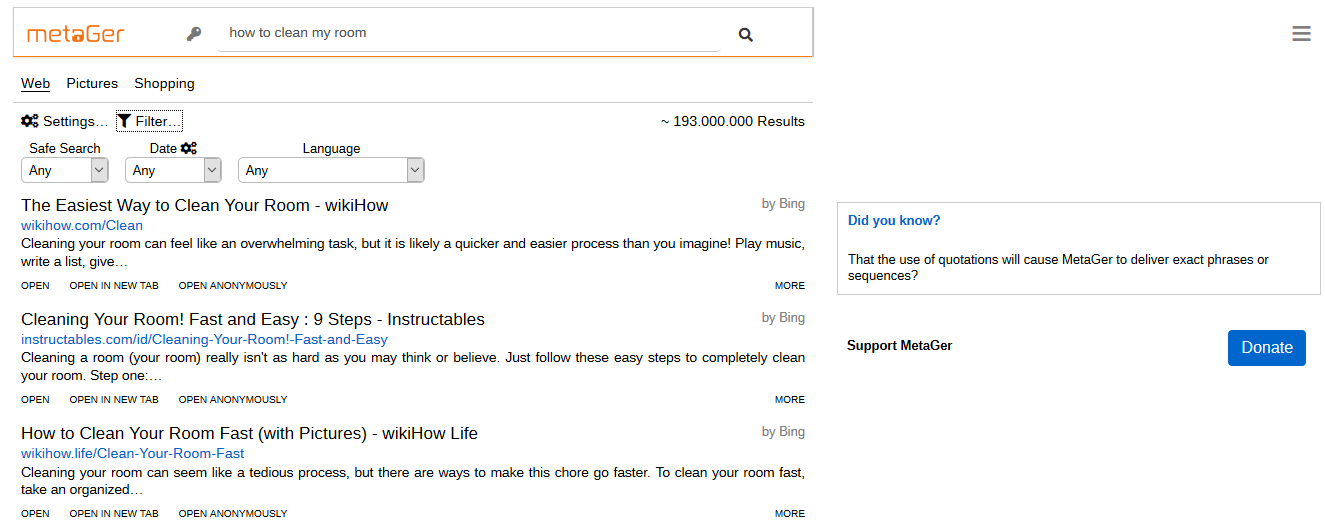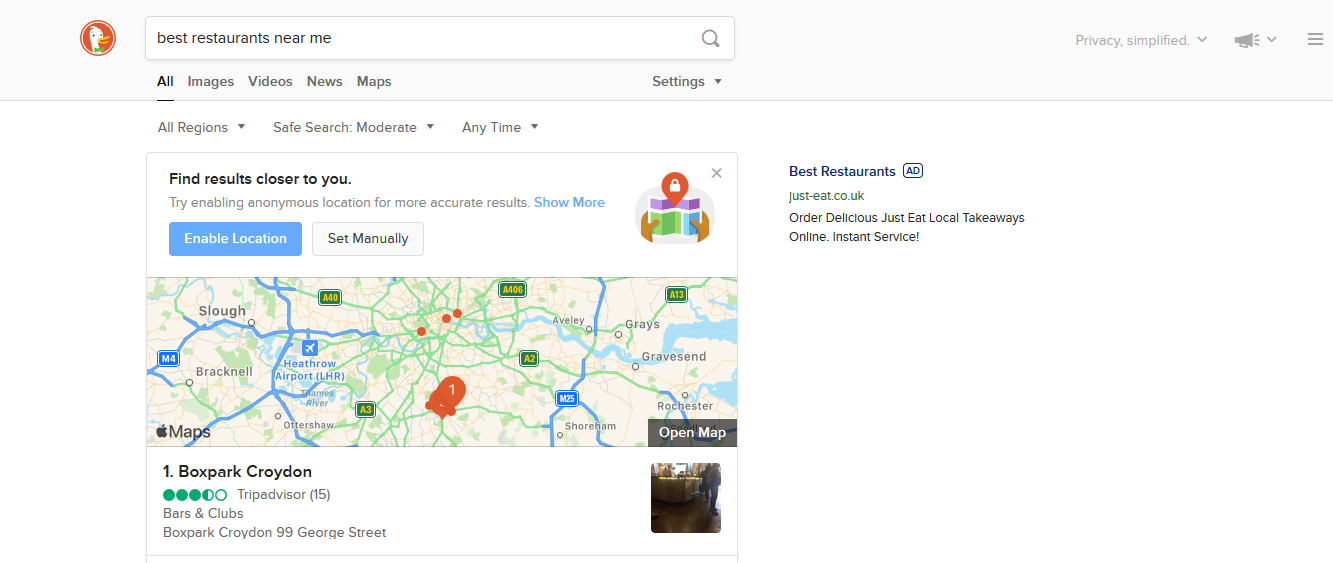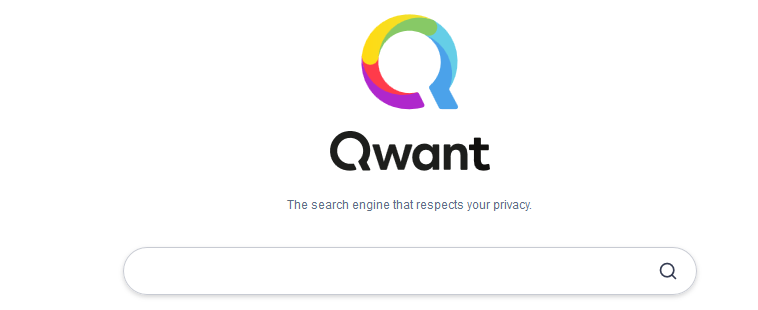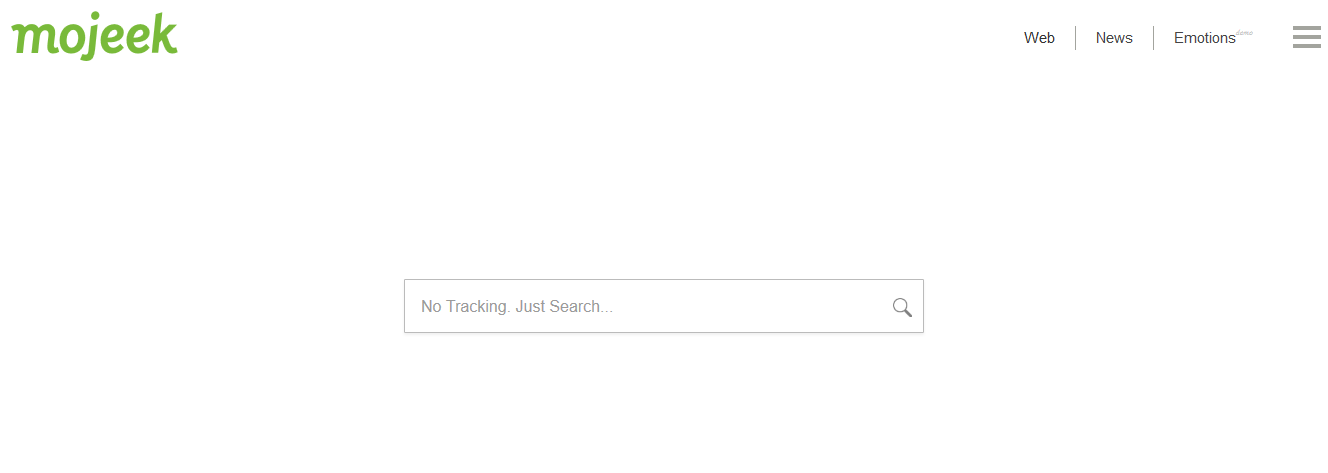
Search engines are the bread and butter of the online world today. True, we may know a couple of websites that give us the information we need. However, getting information from the internet often involves searching a few keywords to point us in the right direction.
If asked to dole out a search engine list, the regulars will likely pop out without thought: Google, Yahoo, and Bing.
Popular and so well organized, these search engines constantly crawl and index websites, while regularly adjusting their algorithms to understand what exactly you need with each query. With each update, they seek to serve you with more appropriate results on every search.
But for this to happen, they gobble up a ton of your personal data with no regard for your privacy. Everything from your search queries to the results you click, your IP address, web browser and device type, unique identifier, and even your location, are all logged.
The resulting “user map” is sold out – directly or indirectly – to advertisers who use this data to harass you with targeted ads. For many users, this feels likes a blatant invasion of privacy.
Thankfully, if you’re concerned about your privacy, there’s a growing number of search engines out there to answer your questions without impugning your privacy.
In this article, we discuss what to look out for in a private search engine, and identify the best private search engines around at the moment.
Your desire to seize control of your privacy by doing away with search engines like Google is highly commendable. However, as you’d soon find out, a number of supposed private search engines aren’t at all private. And some which are indeed private repeatedly deliver terrible performances.
You need to pay attention, therefore, if you’re to find a search engine that respects your privacy while delivering performances that come close to rivalling those of Google.
When searching for the best private search engine for you, the following criteria must be considered:
You should know that there are essentially two ‘types’ of private search engines, categorized according to their method of operation. They are:
 MetaGer
MetaGer

Based out of Germany, MetaGer has been in operation since 1996, and is currently run by the non-profit organization SuMa-eV. MetaGer pulls search results from about 50 search engines, including Bing and Yahoo. But it also has its own web crawlers. This makes it a hybrid of both types discussed above.
It may not have the coolest-looking interface, but MetaGer is easy to use, and it provides reliable results to your queries. Search results can be filtered by date and language, as well as for adult content. You also have the freedom to select which search engines you want your results to come from.
In terms of privacy, MetaGer also proved very impressive. Every search result can be opened anonymously. When you select the “open anonymously” option, your query is run through a proxy server to anonymize your presence on the destination website.

MetaGer does collect some logs, though. Your IP address is collected, as are information on your browser and operating system. This information is passed on to their search partners. However, it’s far from intrusive.
The collected IP address is truncated so all it provides is a vague, approximate data on your location. No cookies are used on your browser; And, every stored data is cleared off after 96 hours. In all, you simply can’t be personally identified by the information collected by MetaGer.
MetaGer is completely open source, which means anyone can audit their source code for foul play. All of its servers are also privately owned and located in Germany with its excellent data protection laws. And tor users will be pleased with the presence of a onion site.
For its business model, they deliver non-targeted ads on results pages. They also accept donations, and individuals can pay membership fees for a completely ad-free experience.
 DuckDuckGo
DuckDuckGo

Perhaps the most popular private search engine out there, DuckDuckGo is a powerful metasearch engine that pulls results from Bing, Yahoo, Wikipedia, and about 400 other sources. Privacy enthusiasts who use the Tor network will find it familiar considering it’s the default search engine on the browser.
DuckDuckGo is a US-based search engine that originally began operations in 2008. Like MetaGer, most results are sourced from Bing, but it does have a close relationship with Yahoo (now Oath).
If you’re interested in 100% anonymity, though, you may be concerned by certain disclosures. First, DuckDuckGo does save your search history.
According to DuckDuckGo, this isn’t stored “in a personally identifiable way”. Stored searches are aggregated so that they are anonymized and are used to “improve things like misspellings”. It also doesn’t store your IP address nor any unique user agent data.
The second, more concerning, disclosure is that DuckDuckGo receives affiliate commissions from partner sites like Amazon and eBay. While this doesn’t necessarily amount to selling your data, it’s okay if it gets you concerned.

performance is where DuckDuckGo has truly excelled. Its user interface is intuitive, and search results are typically very relevant. Searches can also be refined to images, meanings, shopping, maps, news, etc. In this regard, it’s very much like the regular search engines.
'The results are also great for local searches. CEO Gabriel Weinberg explains that it uses your IP to refine local searches, and immediately deletes it. You can also further refine local searches by enabling your location data or manually defining it. Understandably, neither option might appeal to your privacy needs.
 Swisscows
Swisscows

Few private search engines match the level of anonymity provided by Swisscows. Based out of Switzerland, they’re located in one of the best privacy jurisdictions in the world.
They’ve also gone out of their way to provide data security, hosting all of their personally owned servers in the Swiss Alps which is renowned as the safest bunker in all of Europe. But it’s not just their physical location that make them privacy sweethearts.
Swisscows collect no personal data of any kind. Your IP address isn’t collected or stored (in whole or in part). Likewise, nothing about your browser type, OS, or search queries are collected or recorded. Per their privacy policy, the only data they collect is the number of daily search requests.
Their lack of data collection is reflected in their business model which is largely donation based. Without any form of user data in their banks, they have no leverage with ad partners. So, while a few ads find their way in, it’s far from sustainable.
For optimized performance, Swisscow depends on machine learning to quickly identify the most relevant results for your search based on its context. You can also switch your search region to a most appropriate country for even more refined results.
What’s truly unique about Swisscow, though, is that it’s a family-friendly search engine. This is essentially a PG-13 engine that filters out explicit violent or pornographic results. Unfortunately, this isn’t a choice you have to make, so feel free to move on if it isn’t for you.
 Qwant
Qwant

French-based private search engine, Qwant, is another that primarily pulls search results from Bing. As with other Europe-based engines, it enjoys the stricter data protection rules of Europe.
Qwant claims to never collect your data or search history. They don’t use cookies, nor any other form of tracking. And, search queries are instantly anonymized to dissociate them from your IP.
In terms of performance, Qwant is more like the more advanced options on this list. Results can be filtered by category – web, news, images, social, etc. as well as date. With over 10 million searches each day on the platform, it’s clear that Qwant’s rise on the private search engine is so far impressive.
To keep the revenue flow coming, Qwant offers a paid version. This version is affiliated with eBay and Trip Advisor, so you’d be seeing a lot of results from this site. It also allows more customization to make search results more personalized.
 Mojeek
Mojeek

Mojeek is one of a handful of pure search engines in the private search engine space. It offers complete independence from the corporate giants that are Google, Yahoo, or Bing.
This means Mojeek crawls and indexes websites, offering search results based on its own activities. As of a year ago, it claims to have indexed over 2.3 billion pages. This number is expected to have more than doubled by now.
Results can be filtered by web, image or news. If you wish to, you could also narrow down your search results to a specific country or zone.
In terms of privacy, Mojeek tries to stay away from user tracking. They DO keep logs on time of visit, page requested, browser information, and possibly referral data. However, your IP address is shortened to only reveal your country of origin and nothing more.
There’s a catch, though. Mojeek makes an exception to record your IP “if a search query is deemed related to illegal and unethical practices relating to minors”.
It’s important that you fully understand what you’re getting with a private search engine. Although they do not store, use, or sell your private data, they can’t stop other sites from doing same.
For the most part, once you click on a search result, the search engine can no longer guarantee your privacy. With the exception of MetaGer, no private search engine employs proxies to fully anonymize your presence on linked pages. And, even MetaGer’s proxy could make truncate linked websites.
Likewise, no private search engine can keep your ISP from tracking your online activity – if you’re in a country where this practice is allowed.
This makes a VPN truly important if you desire complete protection for your online privacy. The best VPNs conceal your true location, block third-party trackers, and employ military-grade encryption to protect your privacy. This in addition to their many other non-protective features make them ideal.
If you’re contemplating using a VPN with a private search engine and are new to the VPN market, we strongly recommend CyberGhost. It boasts a user-friendly interface for beginners, while also offering total anonymity with a solid AES-256 encryption, multiple server locations, a kill switch, and DNS leak protection.
Google may never lose its chokehold over the search engine market, however, that doesn’t mean you must always dance to its tune. Indeed, searching the web and compromising your privacy can be mutually exclusive..
One thing is certain, all of the names that come to mind first when asked to produce a search engine list will continue to undermine your privacy for their revenue.
Thankfully, with private search engines, you can have complete peace of mind while surfing the internet. Never again should you be worried about the potential of a data breach, or what your data is used for in the hands of these monoliths.